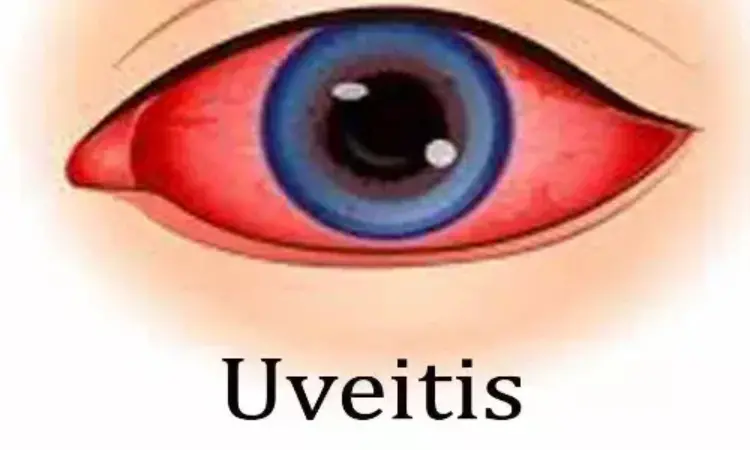- Home
- Medical news & Guidelines
- Anesthesiology
- Cardiology and CTVS
- Critical Care
- Dentistry
- Dermatology
- Diabetes and Endocrinology
- ENT
- Gastroenterology
- Medicine
- Nephrology
- Neurology
- Obstretics-Gynaecology
- Oncology
- Ophthalmology
- Orthopaedics
- Pediatrics-Neonatology
- Psychiatry
- Pulmonology
- Radiology
- Surgery
- Urology
- Laboratory Medicine
- Diet
- Nursing
- Paramedical
- Physiotherapy
- Health news
- Fact Check
- Bone Health Fact Check
- Brain Health Fact Check
- Cancer Related Fact Check
- Child Care Fact Check
- Dental and oral health fact check
- Diabetes and metabolic health fact check
- Diet and Nutrition Fact Check
- Eye and ENT Care Fact Check
- Fitness fact check
- Gut health fact check
- Heart health fact check
- Kidney health fact check
- Medical education fact check
- Men's health fact check
- Respiratory fact check
- Skin and hair care fact check
- Vaccine and Immunization fact check
- Women's health fact check
- AYUSH
- State News
- Andaman and Nicobar Islands
- Andhra Pradesh
- Arunachal Pradesh
- Assam
- Bihar
- Chandigarh
- Chattisgarh
- Dadra and Nagar Haveli
- Daman and Diu
- Delhi
- Goa
- Gujarat
- Haryana
- Himachal Pradesh
- Jammu & Kashmir
- Jharkhand
- Karnataka
- Kerala
- Ladakh
- Lakshadweep
- Madhya Pradesh
- Maharashtra
- Manipur
- Meghalaya
- Mizoram
- Nagaland
- Odisha
- Puducherry
- Punjab
- Rajasthan
- Sikkim
- Tamil Nadu
- Telangana
- Tripura
- Uttar Pradesh
- Uttrakhand
- West Bengal
- Medical Education
- Industry
Adalimumab and corticosteroids may reduce uveitis recurrence among patients with Behcet's disease: Lancet

A new study published in The Lancet Rheumatology showed that adalimumab and corticosteroids resulted in a noticeably decreased risk of recurrence in Behçet's disease uveitis when compared to ciclosporine with corticosteroids. There is a lack of information about head-to-head studies of immunomodulatory treatments for Behçet's disease. In order to avoid uveitis recurrence in patients with severe Behçet's disease, this study examined the safety and effectiveness of ciclosporin, interferon alfa-2a, and adalimumab when used in combination with corticosteroids. Thus, Zhong and colleagues carried out this study to evaluate the safety and effectiveness of ciclosporin, interferon alfa-2a, and adalimumab (Humira, AbbVie) when used in conjunction with corticosteroids.
This large, randomized study was conducted in specialized uveitis center in Chongqing, China. Eligible patients were the ones who were 18 years of age or older, using corticosteroids for severe Behçet's disease uveitis, and had never used anti-TNF medication. The patients received a tapering dosage of corticosteroids with subsequent dose modifications, and were randomly allocated in a 1:1:1 ratio to either ciclosporin, interferon alfa-2a, or adalimumab. The annualized recurrence rate of uveitis, as determined by the whole data set, was the main outcome. For the main endpoint, the non-inferiority margin of difference between the adalimumab and interferon alfa-2a groups was established at 1·0. Every patient who got at least one dosage of the trial medications had their safety evaluated. The conception and execution of the trial involved people who had firsthand experience with Behçet's illness uveitis.
A total of 270 individuals were randomized to receive interferon alfa-2a, ciclosporin, or adalimumab between May 12, 2020 and February 22, 2022; 261 patients made up the whole analysis set. The least-squares mean for the main outcome was 0·95 for adalimumab, 1·84 for ciclosporin and 1·44 for interferon alfa-2a. The patients on ciclosporin had a considerably greater annualized recurrence rate than those on adalimumab. Non-inferiority criterion were not met by the 0·50 least-squares mean difference between interferon alfa-2a and adalimumab. Ciclosporin and interferon alfa-2a did not significantly vary in the main result. 12 (13%) out of 90 patients receiving ciclosporin plus corticosteroids, 8 (9%) out of 90 patients receiving interferon alfa-2a plus corticosteroids, and 7 (8%) out of 90 patients receiving adalimumab plus corticosteroids experienced serious side effects. Overall, the combined protocol of adalimumab plus corticosteroids was better to that of ciclosporine plus corticosteroids for Behçet's disease uveitis on corticosteroid treatment.
Source:
Zhong, Z., Deng, D., Gao, Y., Bu, Q., Dai, L., Feng, X., Tang, C., Luo, X., Wang, Y., Zhou, C., Su, G., & Yang, P. (2024). Combinations of immunomodulatory agents for prevention of uveitis relapse in patients with severe Behçet’s disease already on corticosteroid therapy: a randomised, open-label, head-to-head trial. In The Lancet Rheumatology (Vol. 6, Issue 11, pp. e780–e790). Elsevier BV. https://doi.org/10.1016/s2665-9913(24)00194-2
Neuroscience Masters graduate
Jacinthlyn Sylvia, a Neuroscience Master's graduate from Chennai has worked extensively in deciphering the neurobiology of cognition and motor control in aging. She also has spread-out exposure to Neurosurgery from her Bachelor’s. She is currently involved in active Neuro-Oncology research. She is an upcoming neuroscientist with a fiery passion for writing. Her news cover at Medical Dialogues feature recent discoveries and updates from the healthcare and biomedical research fields. She can be reached at editorial@medicaldialogues.in
Dr Kamal Kant Kohli-MBBS, DTCD- a chest specialist with more than 30 years of practice and a flair for writing clinical articles, Dr Kamal Kant Kohli joined Medical Dialogues as a Chief Editor of Medical News. Besides writing articles, as an editor, he proofreads and verifies all the medical content published on Medical Dialogues including those coming from journals, studies,medical conferences,guidelines etc. Email: drkohli@medicaldialogues.in. Contact no. 011-43720751


